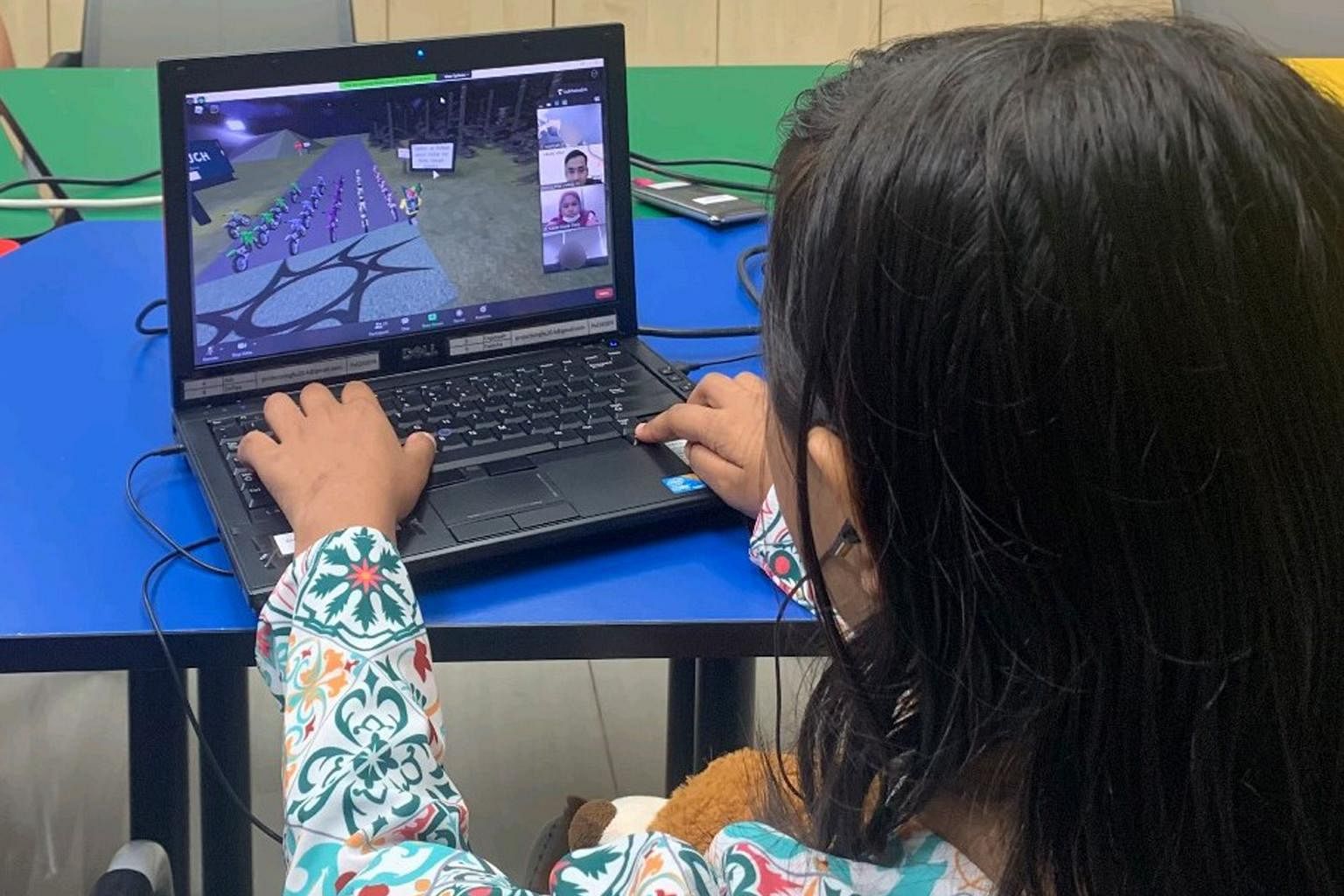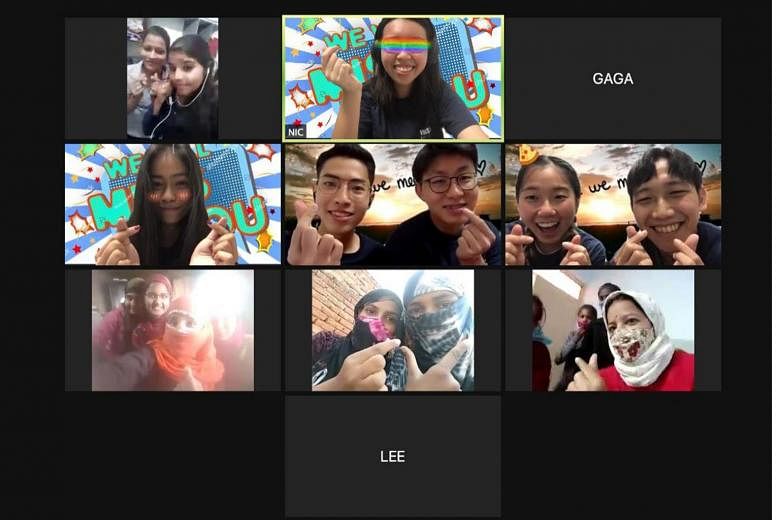SINGAPORE - Travel restrictions that were imposed last year around the world at the height of the Covid-19 pandemic derailed plans for several overseas community service projects that had been in the making for months for some students from the Singapore Management University (SMU).
One such project by a group of 15 students aimed to educate people in Concepcion, a municipality in the Iloilo province in the Philippines on health risks posed by sweetened drinks, as well as help them improve their waste management system.
Some students in the group had scheduled a recce trip to the Philippines in May last year, but called it off when Singapore entered the circuit breaker phase.
Second-year information systems student Frances Severino, 22, one of the leaders of Project Kapawa II, said they decided to tweak the project to fit the context of the pandemic. The students opted instead to look at online teaching and learning in the Philippines.
"While they were in lockdown, they had no structured education programme for students, unlike home-based learning in Singapore. Teachers there were struggling to get something going and were relying on physical materials," said Ms Severino.
The group decided to teach educators to utilise online resources such as Microsoft Excel, PowerPoint and Word, as well as navigate open source websites and find catchy videos on YouTube.
This was done via videoconferencing platform Zoom, with five high schools and three elementary schools. Some 280 teachers from the Philippines participated.
Said Ms Severino: "Initially, there was disappointment (that we could not go to the Philippines in person). But, though we had to do a new project from scratch, it was a rewarding experience."
A second group of SMU students planned to travel to Jaipur, India, to teach street children and destitute women conversational English, mathematics and financial literacy.
This was in partnership with I-India, a non-governmental organisation based there.
But when Covid-19 struck, Project Vikasa had to move to a virtual medium too.
The 30-strong group decided to focus teaching children basic English and mathematics despite the challenges.
Mr Li Zeyu, 22, a second-year business student and one of the group's leaders, said conducting the project virtually on Zoom meant it was more difficult to retain the kids' attention. "It was a lot of thinking on the spot and seeing what worked for them," he added.
For example, there was a lesson on animals where they were going through worksheets with the children and were using a presentation slide-sharing method to teach.
Some children responded better to pictures and videos, so the group members switched to virtual drawing boards and YouTube videos.
They also spoke with the children over Zoom to build connections with them. "We showed our commitment to them despite the circumstances," said Mr Li.
Another team, which had planned to carry out a project in Malaysia, decided to serve a children's home in Singapore instead.
The 19 members of Project Xingfu IX initially wanted to help Rohingya women and children in Malaysia by equipping them with basic life skills.
For example, they planned to teach the women how to monetise their cooking skills and start online businesses, to support themselves and their families.

However, the women and children lacked IT access, which meant the project could not even be continued virtually.
After discussions, the group decided to partner Jamiyah Children's Home in Singapore.
Said Ms Fyra Ng, 25, a third-year business student and one of the team's leaders: "We aimed to ensure that, whatever background the children came from, they had equal opportunities."
In December last year, the group conducted Zoom sessions - twice a day, two hours each - for a week. They taught the children skills such as how to use social media responsibly. Older children learned basic IT and coding skills, interview etiquette and resume writing.
"The kids were so warm and friendly even though they had to share computers. It made us reflect and be thankful for our environment and how privileged we are compared to them," said Ms Ng.


